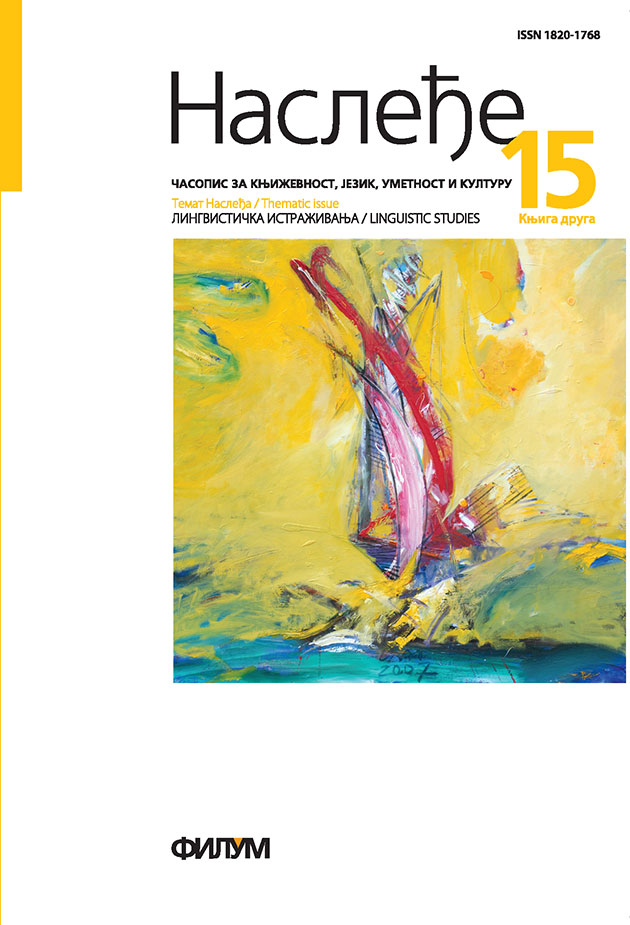INTERCULTURALITY IN TEACHING LANGUAGE FOR SPECIFIC PURPOSES
Keywords:
страни језик струке, интеркултуралне компетенције, култура предузећа, научна култураAbstract
Getting acquainted with the Language for Specifi c Purposes (LSP) is inseparable part of the cultural dimension. This type of dimension is not much available and not really apparent, particularly when we have foreigners. Bearing in mind that each professional activity is an integral part and the refl ection of culture of the certain country, and that it occurs in strict legal frames, the aim of intercultural competence in the fi elds of a LSP would refer to development of competences of people who watch, notice and analyse all the aspects of behaviour of their interlocutors, and to be aware of all the aspects and to adjust their own behaviour. There should be great help of direct talks – interviews – with those people who do some professional work abroad, so that they can transfer experience and observations and they can help the avoidance of some diffi culties and mistakes. Aims and contents of learning/teaching of LSP can be divided into two groups: the fi rst belongs to the domain of language sciences (lexical, grammatical and logical-discursive) and the second belongs to the domain of humanistic sciences (social-historical, law and intercultural). Cultural occurrences cause the development of scientifi c disciplines, as well as any other way of thinking, and cultural climate of a social and professional surrounding depends on the relation towards learning in all fi elds, including the foreign language. This is why we must carefully train experts for LSP. Particularly, we should focus our attention at the cultural features of the areas in which the native tongue is the one they are learning and will be in professional connections with people from those areas.
References
Карас, Толас, Колер, Зилаги 2007: C. Carras, J. Tolas, P. Kohler, E. Szilagyi, Le français sur objectifs spécifi ques et la classe de langue, Paris: CLE International .
Дион 2007: Dion, Géraldine et Tavernier, Cécile, „Entre français de spécialité et français langue professionnelle: le cas de la classe internationale de l’école Boulle“, Le français dans le monde – Recherches et applications n°42 : Langue et travail, Paris, 183-189.
Жирад 2004: M.-A. Giraudy, „Enseigner la communication de spécialité en entreprise“, Le Français dans le monde – Recherches et applications, numéro spécial : Français sur objectifs spécifi ques : de la langue aux métiers, Paris, 81-84.
Леман 1993: D. Lehmann, Objectifs spécifi ques en langue étrangère, Paris: Hachette.
Мангианте 2004: J.-M. Mangiante, et Parpette Chantal, Le Français sur objectif spécifi que : de l’analyse des besoins à l’élaboration d’un cours, Paris: Hachette.
Роланд 2004: D. Rolland, „Langues de spécialité et projets de développement“, Le Français dans le monde – Recherches et applications, numéro spécial : Français sur objectifs spécifi ques : de la langue aux métiers, Paris, 62-74.
Вујовић 2004: А. Вујовић, Француска цивилизација у уџбеницима француског језика, Библиотека Dissertatio, Београд: Задужбина Андрејевић.






